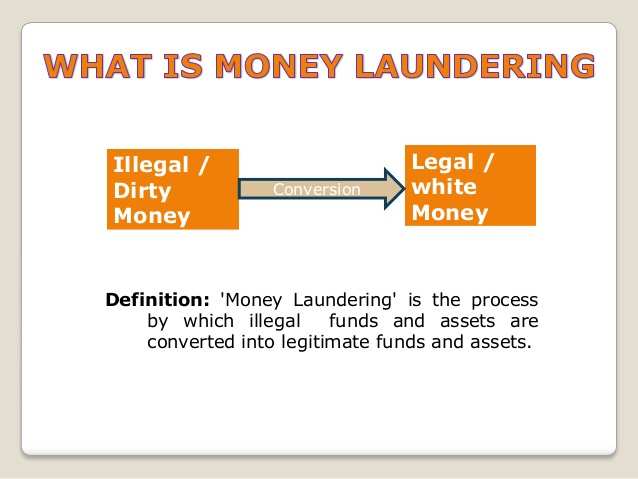LATEST DEVELOPMENTS IN THE PREVENTION OF MONEY LAUNDERING ACT, 2002: VAIBHAV CHAUDHARI
Prevention
of Money-laundering Act (hereinafter also referred to as “PMLA”), 2002 was
introduced by the previous NDA government to curb the raising practice and
incidences of money laundering and also confiscate those properties which were
derived from money laundering in India. PMLA came into force with effect from
July 1, 2005. The acts made it clear that even if the value of individual cash
transaction is less than Rs.10 Lakh each, but are between related parties and
if all such transactions take place in a month, then records are supposed to be
maintained.[1]
The act was introduced with a motive to prevent and control money laundering,
to cease all those properties obtained from money laundering all other issues
connected with money laundering in India.
The
punishment for offences under the act is rigorous imprisonment for 3 to 7 years
and a fine which may extend up to Rs.5 lakh.[2] If money laundering
offence is related to drugs, then it would come under the Narcotics Drugs and
Psychotropic substances act (NDPS), the penalty may extend up to five years.[3]
The
act was amended in the year 2005, 2009, 2012 and the latest amendment was done
in the year 2019.
LATEST
DEVELOPMENTS
The case of Nikesh
Tarachand vs. Union of India:
On
24th of November 2017, the Supreme Court in the case of Nikesh
Tarachand Shah vs. Union of India[4] ruled in the favour of
citizens’ liberty by declaring section 45(1) of the PMLA Act unconstitutional.
It was observed that the provision in question was violating article 14 and
article 21 of the constitution. Section 45 provides that no person can be granted
bail for any offence under the act unless the public prosecutor, appointed by
the government, gets a chance to oppose his bail. And if at all the public
prosecutor choose to oppose the bail, the court has to be convinced that the
accused was not guilty of the crime and added that he was not likely to commit
any offense while out on a bail.
While
striking down the provision, the bench dismissed the arguments made on behalf
of the state by the attorney general KK Venugopal that strict provisions were required
to deal with money laundering.[5] The AG argued contended
that this legislation was an attempt made by the parliament to get back money
which has been siphoned off from the economy, and the twin condition in section
45 is only in furtherance of this object of bringing back the black money[6].
The
court, in this case, has very rightly observed that.
· There
is no nexus existing between the object of the PMLA Act, which penalizes for
the offense of money laundering and the aim of section 45, which applies to
other offenses.
· Classification
of an offense based on the sentence of imprisonment of more than three years in
part A of the schedule is unjustified and arbitrary. Also, it doesn’t match with
the objective of the PMLA Act.
· The
provision would result in manifestly “arbitrary, discriminatory and unjust
results” and will violate article 14 and 21.
Finance act, 2019
The
finance act, 2019 recently received the assent of President of India and became
an act. This legislation also made certain amendments in the PMLA, 2002. Below
are some highlights of amendments made in the PMLA, 2002.
· Insertion
of explanation to the definition of “proceeds of crime” under section 2(u) of
PMLA, 2002:
The explanation added is
a clarification for removal of doubt that the proceeds of crime not only include
property derived or obtained through scheduled offence but also property
obtained through any criminal activity related to the scheduled offence. As the
definition added is explanatory, as it is just explaining the already stated
definition of “proceeds of crime”, it will likely have a retrospective effect.
· The
omission of proviso provided under section 17(1) and section 18(1) of PMLA:
The deletion of this
proviso is going to have a prospective operation. The impact of this deletion
is that the officer under PMLA can enter any property to conduct search and
seizure, search any person even in absence of any reporting of the scheduled
offense to a magistrate or court for taking cognizance of the scheduled offense.
· Insertion
of explanation to the proviso of “offences to be cognizable and non-bailable”
under section 45(2) of the PMLA:
The explanation has
clarified the meaning of “offences to be cognizable and non-bailable”. It says
that all the offences under this act shall be cognizable offences and
non-bailable offences notwithstanding anything to the contrary contained in the
code of criminal procedure, 1973. The explanation further states that the
officers authorized under this Act are empowered to arrest an accused without a
warrant provided that the conditions given under section 19 are fulfilled.
This explanation ends to
a much long controversy as there were contradictory judgments of various high
courts on the matter that whether the offence of money laundering is cognizable
and non-bailable or non-cognizable and bailable.
[1] Anti-Money
laundering act kicks off, Economic Times (Aug. 28, 2020, 10:00 AM) https://economictimes.indiatimes.com/news/economy/policy/anti-money-laundering-act-kicks-off/articleshow/1156901.cms
[2] PMLA
2002, Section 4.
[3] Supra
Note 1.
[4] (2018)
11 SCC 1.
[5]Samanwaya
Rautray, SC holds stringent bail condition in PMLA as unconstitutional, Economic Times, (Aug. 29, 2020, 11:21 AM) https://economictimes.indiatimes.com/news/politics-and-nation/sc-holds-stringent-bail-condition-in-pmla-as-unconstitutional/articleshow/61771530.cms?from=mdr
[6] Ibid.


Comments
Post a Comment